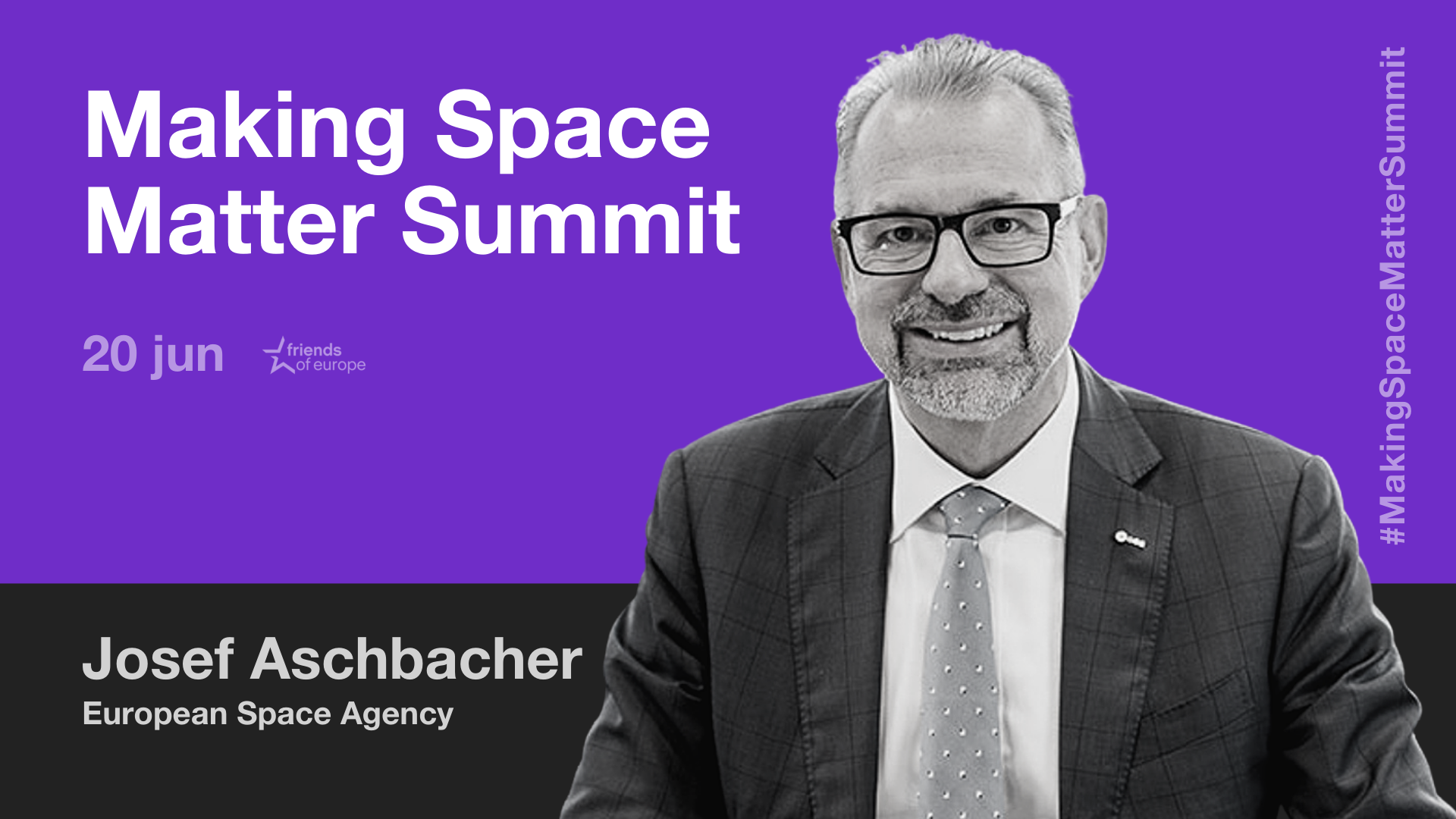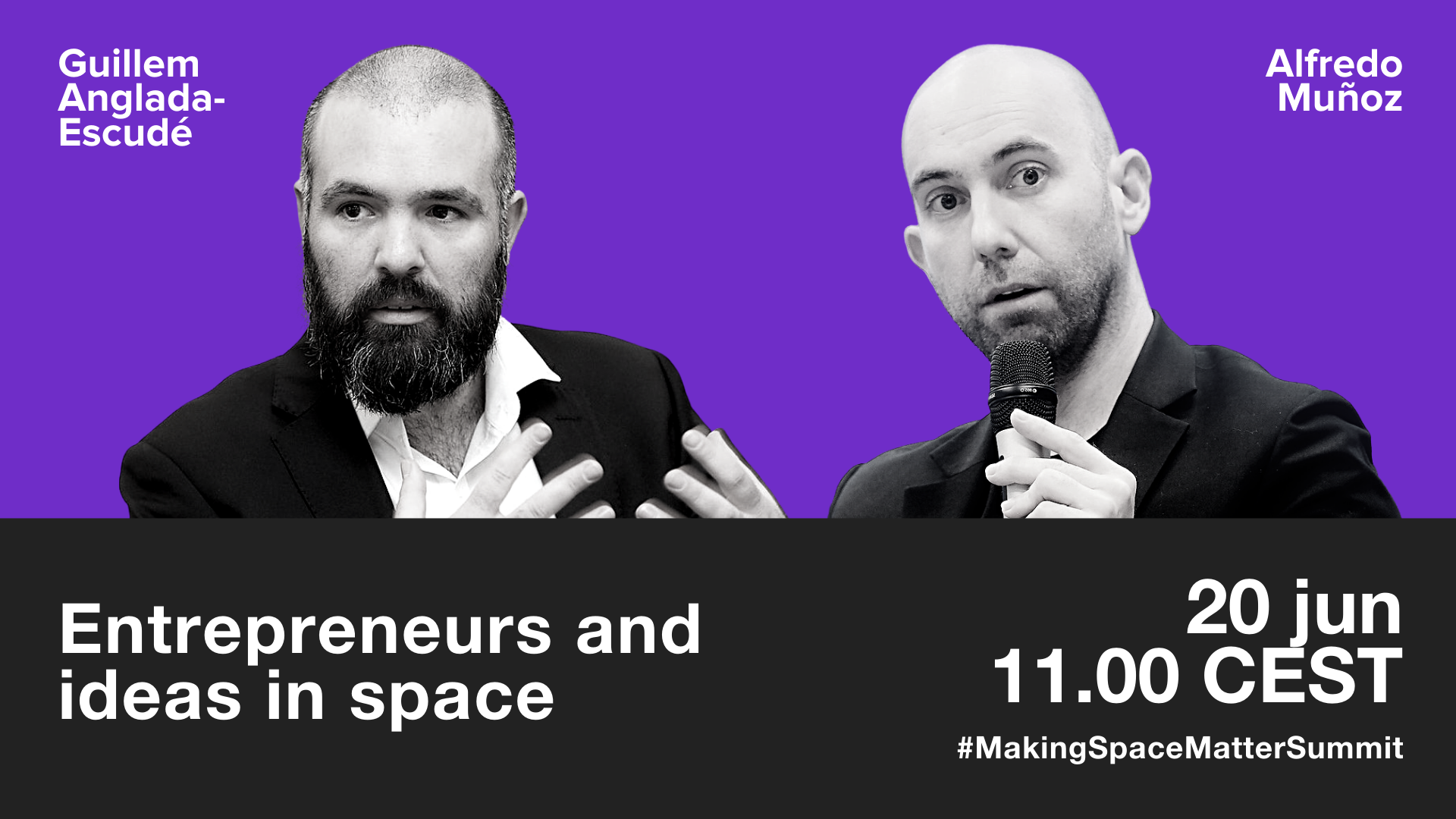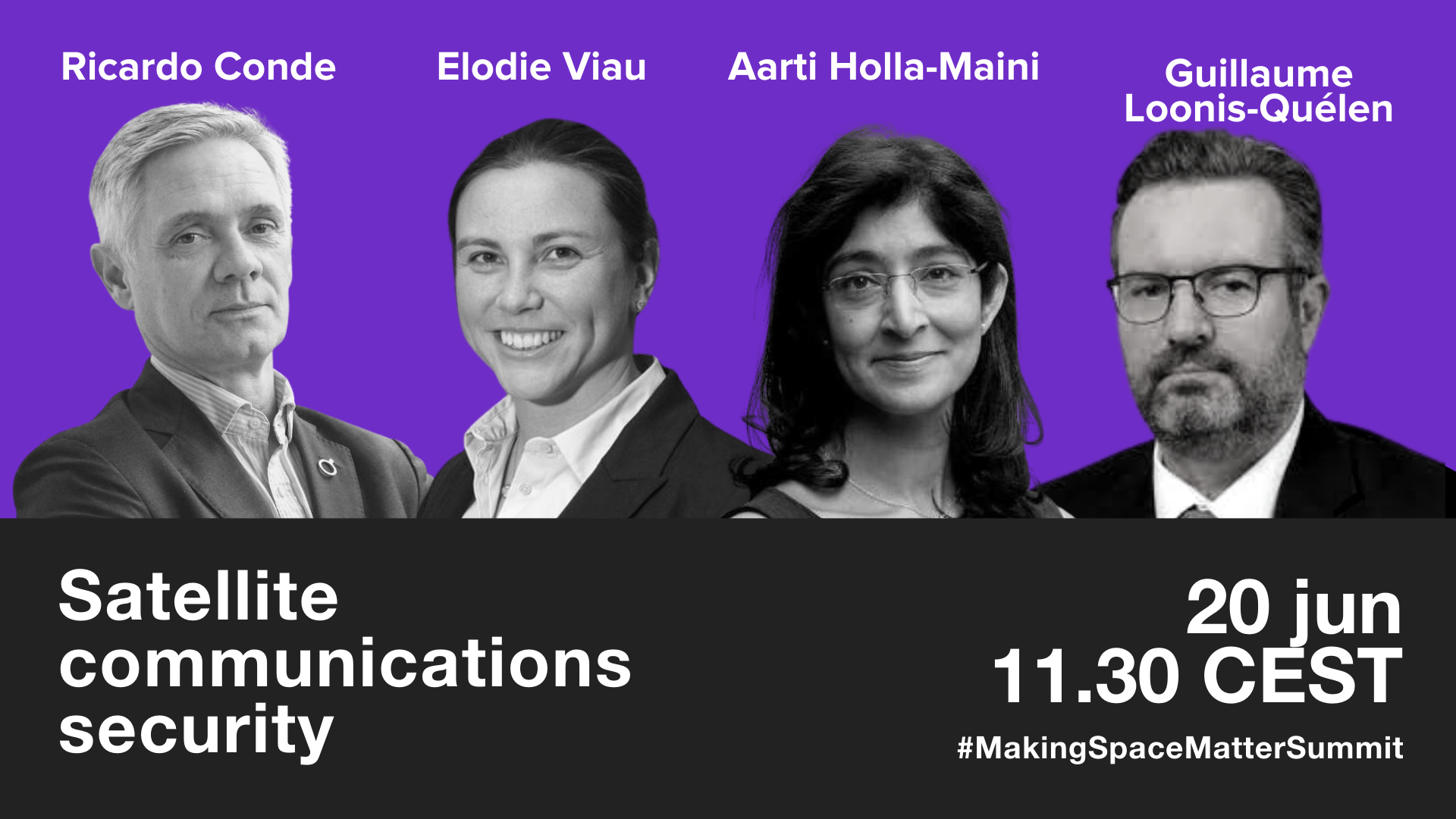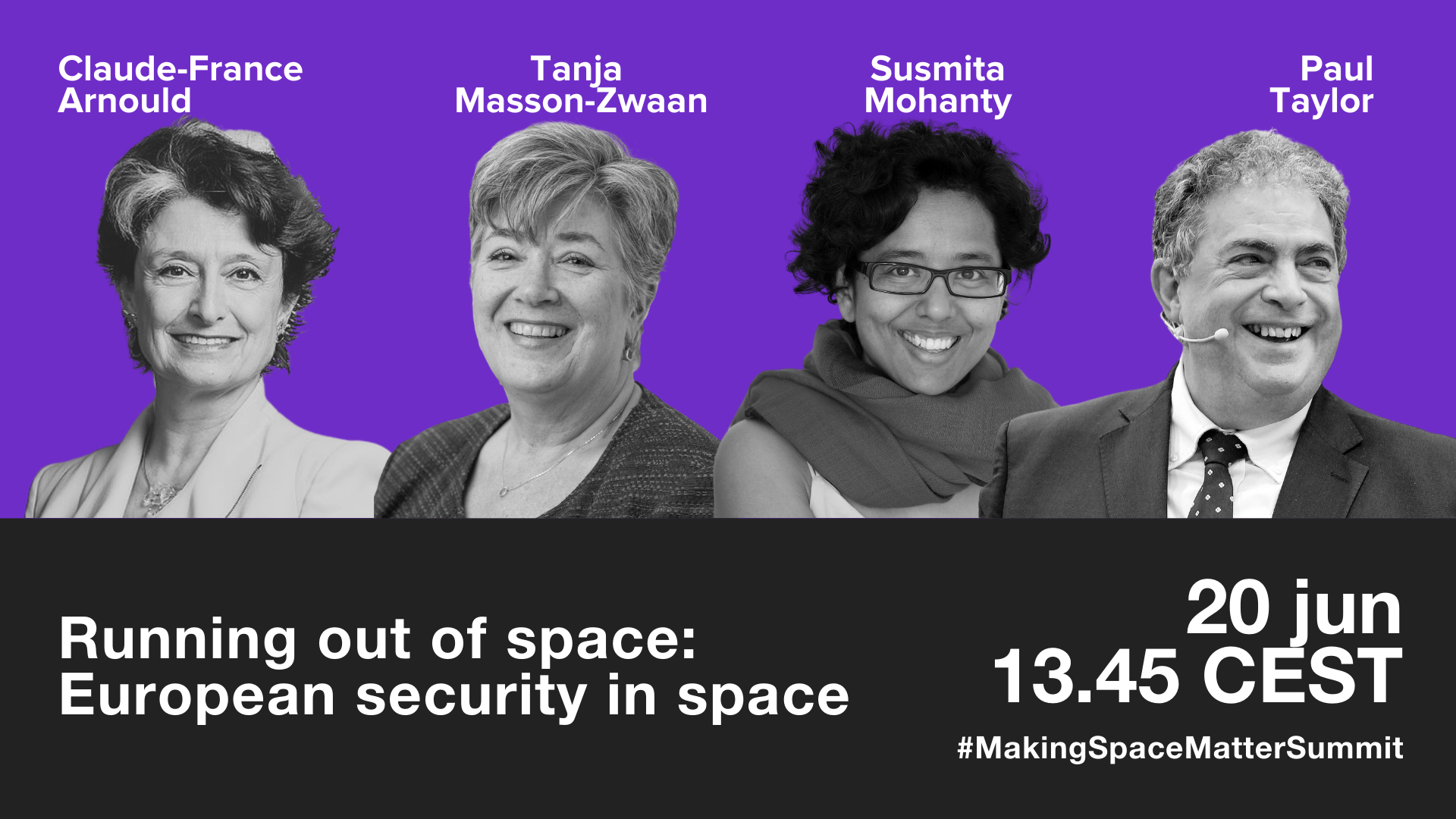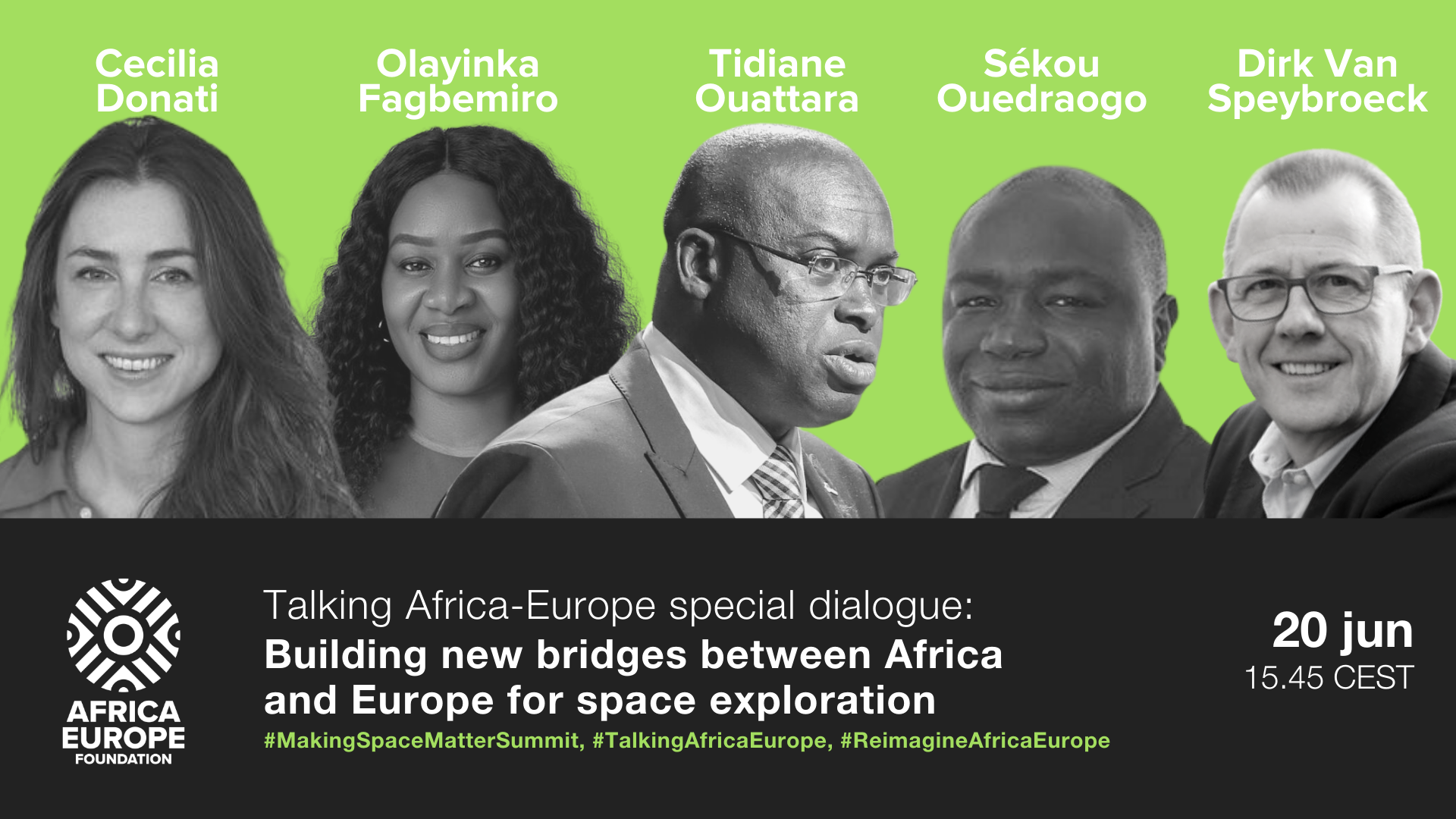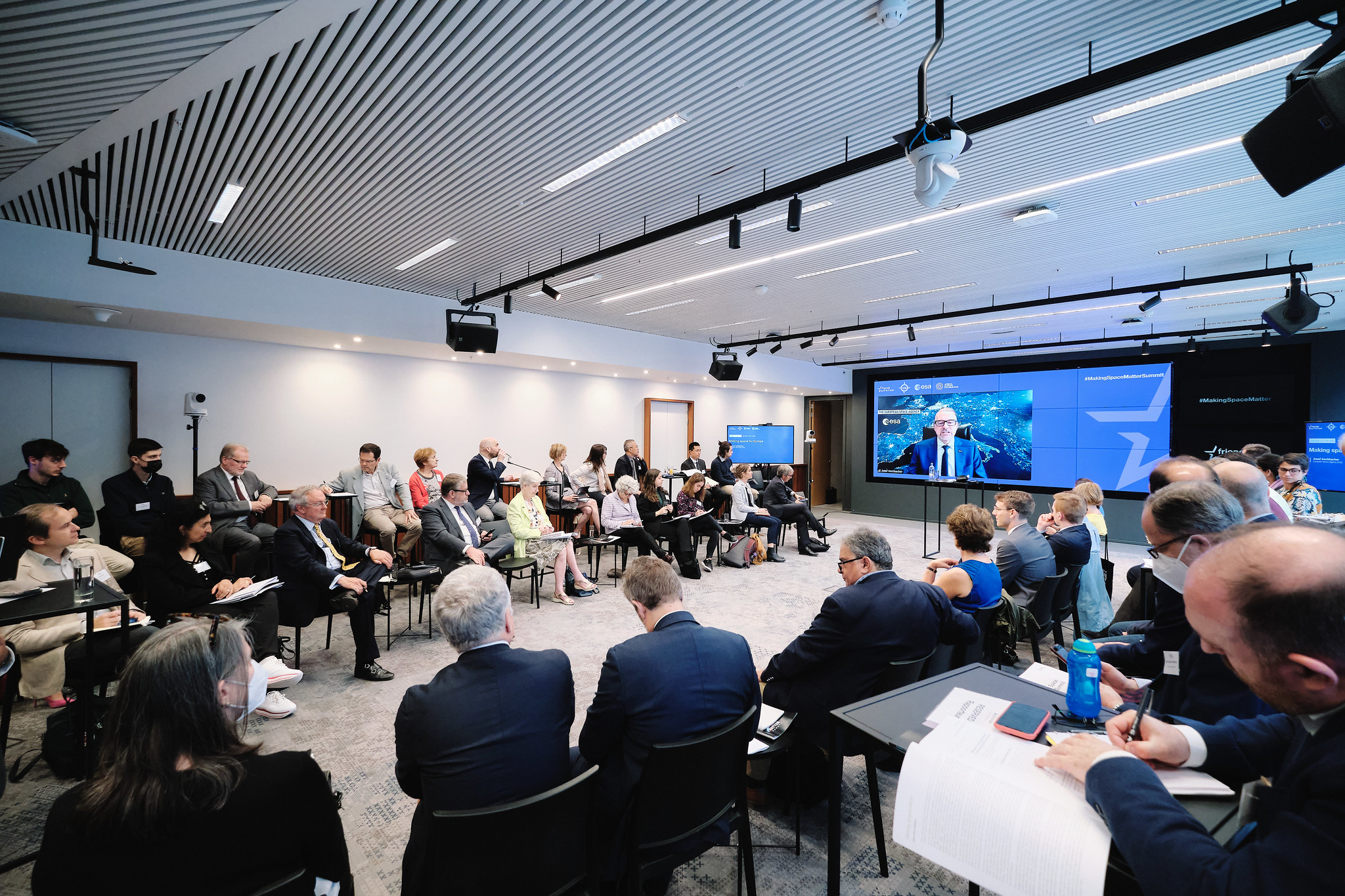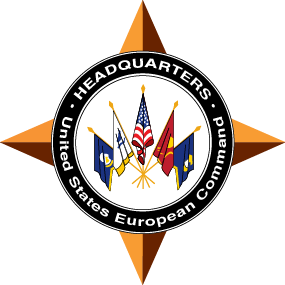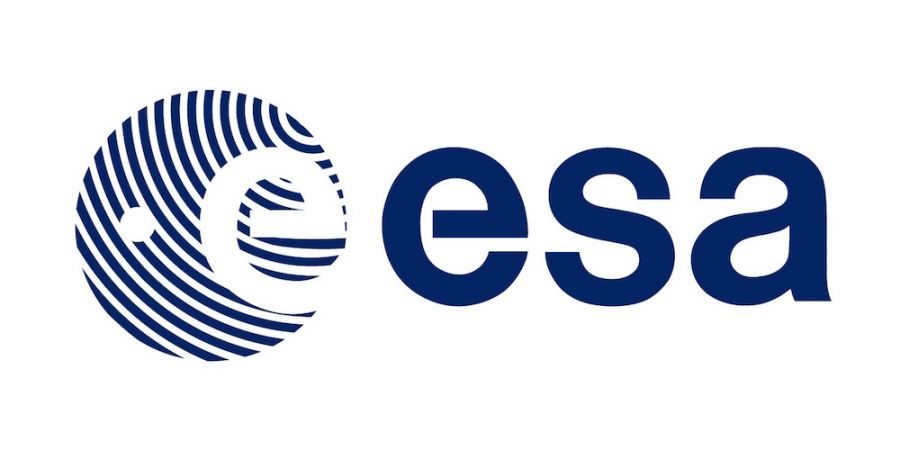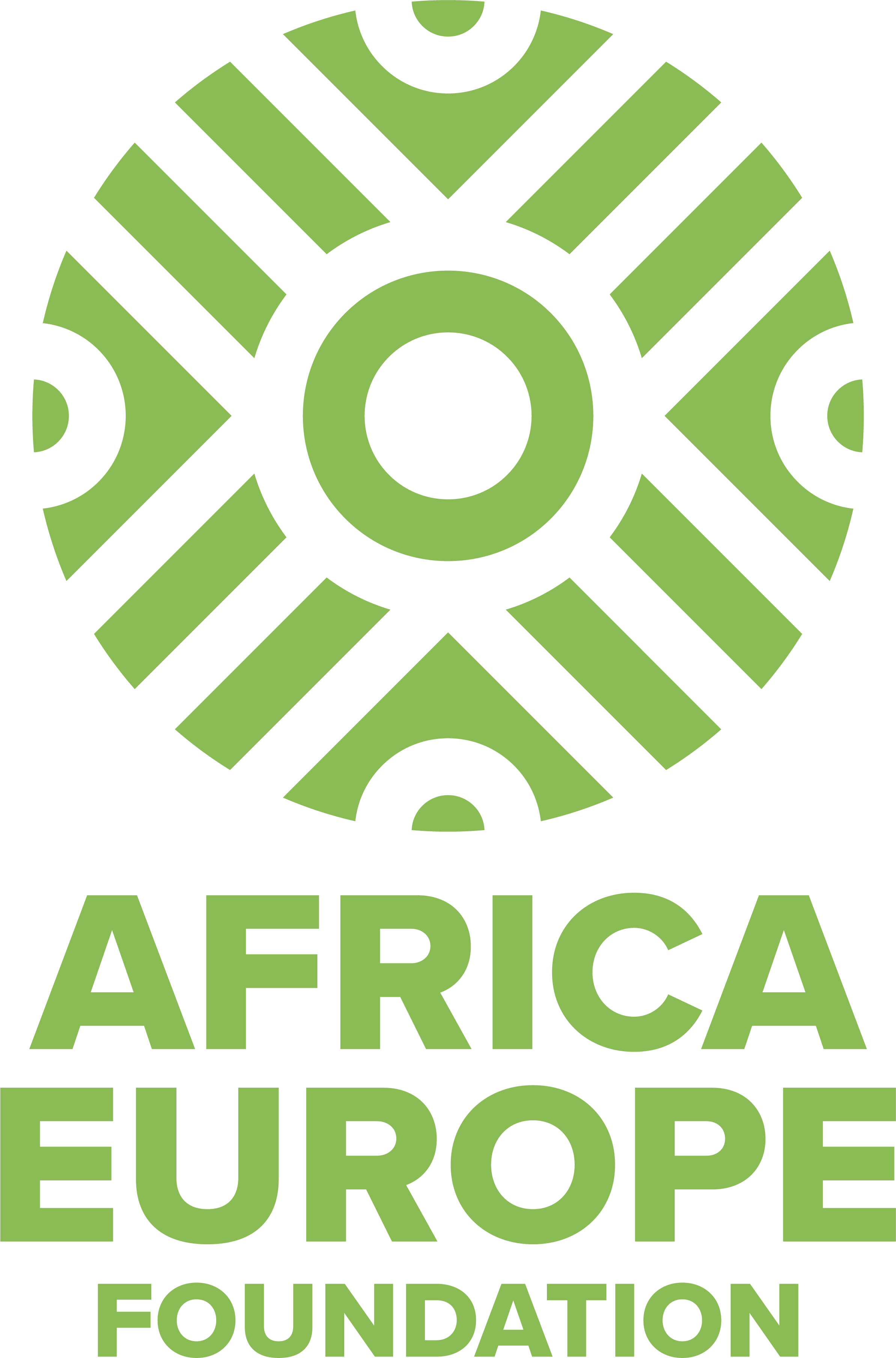
Summary
In order to achieve a clean and safe space policy, the European Union needs to play a central role in building commercial and public success stories, heard the audience at the Friends of Europe Making Space Matter Summit on 20 June 2022. Experts argue that Europe has a responsibility to create markets and international partnerships, as space becomes part of citizens’ everyday lives.
“We are at a very decisive point in Europe,” said Josef Aschbacher, Director General of the European Space Agency (ESA), opening the day of talks. “We have the capability, the excellence and the brains. We need to convert this into success stories, both commercially and in the public sector.”
Speakers and participants met in Brussels to consider topics, including entrepreneurs and ideas in space, satellite communications security, European security in space and building new bridges between Africa and Europe for space exploration.
Climate change offers important lessons and opportunities in the race to create a new space market, the audience heard. As with the climate crisis, action must be taken to make clean, safe and sustainable practices the norm in space before a tipping point is reached. At the same time, data gathered through space technologies are already helping us understand and address problems caused by climate change, including crop failures and coastal erosion.
EU technologies, such as the EU’s Galileo and Copernicus satellite programmes, play a leading role in many of these climate change and other data observation projects. However, for truly successful space projects and infrastructure to emerge safely, Europe must forge new partnerships in the world, experts argued.
This could include new collaboration between the EU and NATO in the space area, as set out in a Friends of Europe study, ‘Running out of space: European security in space’, which was presented at the event.
New partnerships between the EU and Africa also hold exciting possibilities for understanding and exploring space, as African countries and the African Union turn increased attention to space policy. The EU was also advised to find new ways of working with the private sector, including small start-ups, to foster commercialisation in data policy. Several speakers said they feared that the EU will lose entrepreneurs to countries, such as the United States, unless there is a coordinated push to develop markets and remove barriers to competitiveness. Regions should be given a greater role in this push towards competitiveness, the event heard, rather than expecting the EU to do everything from the top down.
Space exploration, capacity, competition, infrastructure and its role as a new market and security domain will prove to be defining issues for our planet over the next decade and beyond, speakers argued. Space has the potential to reap huge rewards for social good, progress in terms of our common digital future and the ability to mitigate and manage the impact of climate change.
Importantly, the Space Matters Summit heard that the EU can already make a positive difference to the new space race through existing structures, notably the ESA, EU Agency for the Space Programme and the EU European Defence Agency. Every aspect of our lives, and every policy, has the potential to be impacted the way Europe and its partners approach the new questions of space.
“The big question is, where does Europe stand?” asked Aschbacher. “Is Europe really participating?”
On 22 June 2022, at least one meeting in Brussels hoped to answer some of those questions. The EU and its partners, both old and new, heard what might lie out in space for 21st century development.
About
Friends of Europe goes back to physical events. The event will take place in person in Brussels, but will also be available to a wider audience via livestream.
Follow us on Twitter @friendsofeurope and join the discussion #MakingSpaceMatter
Space exploration, capacity, competition, infrastructure, and its role as a new market and security domain will prove to be defining issues for our planet over the next decade and beyond. Space has the potential to reap huge rewards for social good, progress in terms of our common digital future and ability to mitigate and manage the impact of climate change. Every aspect of our lives, and every policy, has the potential to be impacted by the way Europe and its partners approach the new questions of space. Satellites in particular, and the wider role of space as a new frontier of intelligence and real time situational awareness, will increasingly be an important facet of current crises and future conflicts.
Friends of Europe’s Making Space Matter Summit in June 2022 will provide an alternative platform to discuss space matters and making space matter.
This occasion will serve as the launch of the latest addition to our European Defence Cooperation series – “Running out of space: European security in space” – and through a series of interactive debates will also address issues such as space exploration, satellite systems security, entrepreneurship and more.
Schedule
Precedents set by companies such as SpaceX and Blue Origin, as well as the multitudes of smaller companies, highlight not only the role taken by private actors in the current space contest, but also how public-private cooperation is essential to lead the race and gain strategic autonomy in space. The success of these organisations, and their partnerships with national space agencies, equally underlines how important encouraging both public and private sector investment in industry, start-ups and entrepreneurship in space is. It also illustrates how continents other than Europe offer better environments for start-ups and SMEs to prosper. Developing a thriving investment and entrepreneurship environment presents both challenges and opportunities for Europe.
How Europe can Europe become competitive, encourage growth and innovation, and catch up in this field?
with
Guillem Anglada-Escudé
Astrophysicist and Exoplanet Discoverer; Ramón y Cajal Research Fellow at the Institute of Space Sciences (IEEC-CISC) and 2018 European Young Leader
Alfredo Muñoz
Founder & CEO of ABIBOO Studio and 2019 European Young Leader (EYL40)
Satellite communications systems today provide vital connections, are critical in disaster relief, emergency response, remote exploration, defence and humanitarian efforts. The EU is creating Secure SatCom, which will ensure the security of these communications, as well as Europe’s security, prosperity and competitiveness. This session, held shortly after the EU Competition Council, will address whether this additional level of security will inspire the growth of SMEs and start-ups working in the satellite field, how this decisive action will set Europe apart in the use of space; and whether satellite overcrowding should be a concern.
- How can Europe strike the right balance in stimulating the private sector whilst ensuring Europe’s security?
- What do operations like this mean for Europe’s strategic autonomy in space?
with
Ricardo Conde
President of the Portuguese Space Agency
Aarti Holla-Maini
Secretary-General at Global Satellite Operators Association (GSOA)
Guillaume Loonis-Quélen
Space law expert
Elodie Viau
Director of Telecommunications and Integrated Applications at the European Space Agency (ESA)
Europe can point to major collective achievements such as the EU’s Galileo satellite navigation system, the Copernicus earth observation programme, and the EU Satellite Centre – assets which serve as a strong foundation for building European security in space. However, space is increasingly congested and contested and Europe is falling behind in key areas of the race to utilise space for the benefit of its population and to protect its interests. A step change in public investment and strategic culturem is necessary, to keep up with the militarisation of space and the development of counter-space capabilities. The EU needs to change gear rapidly, to deal with the increasing power rivalry which has accelerated over the last 15 years.
The latest study of Friends of Europe on European Defence Cooperation “Running out of space: European security in space” will be launched on this occasion.
Presentation of the study by Paul Taylor, Senior Fellow at Friends of Europe and author of ‘Running out of space: European security in space’
Reactions from:
reactions from
Claude-France Arnould
Advisor to the president on European affairs at IFRI
Tanja Masson-Zwaan
Assistant Professor and Deputy Director of the International Institute of Air and Space Law at Leiden University
Susmita Mohanty
Director General of Spaceport SARABHAI
Through this summit, as well as our broader engagement, Friends of Europe and the Africa-Europe Foundation argue that space matters should be a priority and feature more prominently in public policy and budget in Africa and Europe. Solidifying Europe’s presence in the solar system and traveling further out into the cosmos will require finding solutions to complex scientific and political obstacles.
This year is pivotal for space matters in Europe and Africa in the lead up to the 2024 European elections and the new EU mandate. It also marks an important milestone in the development of the African space industry, following the inauguration of the African Space Agency (AfSA) in January. If all goes according to plan, the AfSA will be operational by the time we host this summit. This is a significant sign of progress as it will provide bedrock for space actors in Africa – be it private sector or nation-states – to coordinate, strategise and grow together. By centralising decision-making and knowledge-sharing, the AfSA will be able to develop new partnerships, as well as continue growing historic ones, such as the decade-long collaboration with the European Space Agency. A glowing example of this is the EU Iris² programme, which aims to improve secure connectivity across underserviced geographical areas such as Africa.
This third session of the Space Matters Summit will focus on space applications in Africa using data from telecommunications, positioning and earth observation satellites. The development of the African space infrastructure is set to inform how several challenges can be addressed on the African continent including preparing for – and responding to – natural disasters, food security, management of natural resources and increased internet connectivity for economic development. This is only the beginning of a new chapter in Africa’s digital age, but the recipe for success is still unclear. Some essential ingredients may include data informed planning, coherent strategic frameworks and a sensible combination of internal and external partnerships.
How can the African population reap the benefits of space? Is the African space industry at risk of neo-colonialist ventures? What needs to be done to bridge the digital gap in Africa? Join us for the closing session of the summit to discuss the challenges facing Africa, the fastest growing digital market in the world.
with
Cecilia Donati
Policy Officer – Research and Innovation for Development at the European Commission Directorate-General for International Partnerships
Olayinka Fagbemiro
Chief Scientific Officer at the National Space Research & Development Agency of Nigeria (NASRDA), and Founder & National Coordinator of Astronomers Without Borders (AWB)
Tidiane Ouattara
Space Science Expert at the African Union Commission
Sékou Ouedraogo
President-founder of the African Aeronautics & Space Organisation (AASO)
Dirk Van Speybroeck
Strategy Advisor – Remote Sensing at VITO NV
Speakers

Advisor to the president on European affairs at IFRI
Claude-France Arnould maintains extensive experience in the European defence and space sectors. Prior to joining IFRI, she was a diplomatic advisor to the French Ministry of Europe and Foreign Affairs, in which role she was entrusted with a mission regarding space. Arnould has previously served as the French ambassador to Belgium, special envoy for space at the European External Action Service and chief executive of the European Defence Agency. She headed the Crisis Management and Planning Directorate at the Council of the European Union, after being director for defence matters at the Council. Arnould is the former director of international and strategic affairs at the General Secretariat of National Defence. She has also worked on community issues at the French Ministry of Foreign Affairs.

Director General of the European Space Agency (ESA)
Thirty years ago, Josef Aschbacher began his career at the European Space Agency (ESA) where he was seconded as the ESA Representative to Southeast Asia at the Asian Institute of Technology in Bangkok. Later, he joined the European Commission’s Joint Research Centre (JRC) in Ispra, Italy, where he served as scientific assistant to the Director of the Space Applications Institute. Upon his return to ESA headquarters in Paris, he was tasked with advancing Copernicus activities within ESA, going on to become head of the Copernicus Space Office, where he led all activities for Copernicus within the Agency and with external partners, in particular the European Commission. Before taking office as the ESA’s Director General, Aschbacher was entrusted with planning the ESA’s Earth Observation Programme, as well as formulating and implementing programmatic and strategic decisions across the Directorate.

Astrophysicist and Exoplanet Discoverer; Ramón y Cajal Research Fellow at the Institute of Space Sciences (IEEC-CISC) and 2018 European Young Leader
Guillem Anglada-Escudé is a well-known astrophysicist and scientist, whose current work focuses on exoplanet detection and planetary exploration. Most notably, Guillem and his team discovered the Proxima b exoplanet orbiting Proxima Centauri, our closest neighbouring star and the nearest star to the Sun. He- has previously worked as a postdoctoral researcher at the Carnegie Institution for Science, University of Goettingen, as well as Queen Mary University of London, where he became a reader in astronomy. He has conducted research in several countries and has been actively engaged with space agencies, such as NASA and the European Space Agency. In 2016, Guillem was named among the ten most prominent scientists worldwide by Science Magazine and one of TIME Magazine’s 100 most influential people in the world.

President of the Portuguese Space Agency
Ricardo Conde is the President of the Portuguese Space Agency, prior to which he served the Portuguese Space Agency, Portugal Space as a member of the board. Early on in his professional career, he started working in the aeronautics and space sector. Since, Conde has participated in several national and international programmes, particularly in space and ground segments.

Policy Officer – Research and Innovation for Development at the European Commission Directorate-General for International Partnerships
Cecilia Donati started her EU career at the cabinet of the Vice-President for Industry and Entrepreneurship at the European Commission. She has over a decade of experience in EU-related affairs and the science-policy nexus. Her main fields of work include space and earth observation, specifically Copernicus and space research, as well as marine and ocean environmental policies with a strong focus on innovation and research related to the sustainable use of ocean and marine environment, the blue economy and blue growth.

Chief Scientific Officer at the National Space Research & Development Agency of Nigeria (NASRDA), and Founder & National Coordinator of Astronomers Without Borders (AWB)
Olayinka Fagbemiro is a Chief Scientific Officer at the Nigerian Space Agency, where she has worked for 15 years. She currently heads the Space Education Outreach Unit of the agency and is a member of the Planning, Policy and Research team. She is also the Founder and National Coordinator of a STEM-based NGO, Astronomers Without Borders (AWB) in Nigeria. Fagbemiro is a PhD candidate at the Geoinformatics Department at the African University of Science and Technology (AUST) and a 2020-21 TechWomen Fellow for Nigeria. TechWomen is an initiative of the US Department of State’s Bureau of Educational and Cultural Affairs.

Secretary-General at Global Satellite Operators Association (GSOA)
Aarti Holla-Maini has been Secretary-General of the GSOA since 2004. She is a Member of the World Economic Forum’s Global Future Council on Space, the WEF Global 5G Coalition Network and the WEF Essential Digital Infrastructure & Services Network. Under Aarti’s leadership, GSOA & its member CEOs lead the effort to showcase the benefits of satellite communications for a more inclusive and secure society – vital to bridging the world’s digital divide, achieving the UN’s Sustainable Development Goals and realizing the 5G ecosystem. Aarti has over two decades of experience in the aerospace industry, starting at Daimler-Benz Aerospace/EADS (now Airbus) in Germany. In 2000, she moved to Brussels, representing Airbus interests in the European satellite navigation program: Galileo.

Space law expert
Guillaume Loonis-Quélen is a space law expert, who opened the Loonis-Quélen law firm. A specialist in maritime security and labour law, he is also an expert in international and space law, which he studied at the European Centre for Space Law, established under the auspices of the European Space Agency (ESA). Previously, Loonis-Quélen has notably worked at eSpace, the Space Centre of the École Polytechnique Fédérale de Lausanne (EPFL), and as an associate expert at the International Labour Organization.

Assistant Professor and Deputy Director of the International Institute of Air and Space Law at Leiden University
Tanja Masson-Zwaan is the President Emerita of the International Institute of Space Law (IISL) and faculty at International Space University (ISU). She advises the Dutch government on space law issues and co-founded the Hague International Space Resources Governance Working Group. She is an elected member of various associations, including the International Academy of Astronautics, the International Law Association and the Académie de l’Air et de l’Espace. Masson-Zwaan also sits on the boards of the Arizona State University Interplanetary Initiative, the Open Lunar Foundation and the Space Generation Advisory Council. Previously, she was a member of the European Centre for Space Law Board, Women in Aerospace Europe and the Advisory Committee of Secure World Foundation.

Director General of Spaceport SARABHAI
Susmita Mohanty is a spaceship designer and serial space entrepreneur. Mohanty is the only space entrepreneur in the world to have co-founded companies on 3 different continents: EARTH2ORBIT Bangalore, MOONFRONT, San Francisco and LIQUIFER Systems Group, Vienna. Most recently, she launched Spaceport SARABHAI – ‘India’s first dedicated space think tank’ that hopes to re-centre the global space narrative, give India an international voice, grow the body of knowledge that informs critical areas of space law and policy, and help transform India into a developed space economy by 2030.

Founder & CEO of ABIBOO Studio and 2019 European Young Leader (EYL40)
Alfredo is a Spanish architect, who has designed and managed more than six million square metres across five continents. Under Alfredo’s leadership, his architectural, urban and interior design firm has designed projects in a wide range of scales, from large urban developments and affordable housing townships to small temporal structures. Before founding ABIBOO, Alfredo held senior roles at Toyo Ito and SOM. Internationally-renowned, Alfredo was recognised among the most important and emerging young architects and designers by the European Centre and the Chicago Athenaeum Architecture Awards, and his work has been featured in various media outlets, including The New York Times, Wallpaper and Domus, among others.

Space Science Expert at the African Union Commission
Tidiane Ouattara is the Space Science Expert in charge of the development and implementation of the African Outer Space Programme, as well as the Coordinator for the Global Monitoring for Environment and Security (GMES & Africa) Programme at the African Union Commission. Previously based in Canada, he has, through various positions at the Canadian Space Agency, Department of Natural Resources and Department of Environment, built expertise in issues related to the environment, natural resources, sciences and technologies, as well as geospatial data management.

President-founder of the African Aeronautics & Space Organisation (AASO)
Sékou Ouedraogo is the Founding President of the African Aeronautics & Space Organisation (AASO), which aims to promote cooperation and investments on space on the African continent to contribute to its sustainable development. An electrical engineer and international policy expert by training, he has worked on several aeronautical programmes in international industrial groups. He has also published a book on the African Space Agency and is an editorialist on space and aeronautics for several media outlets, including BBC, France 24, RFI and Deutsche Welle.

Senior Fellow for Peace, Security and Defence at Friends of Europe
Paul Taylor is a Senior Fellow at Friends of Europe and the author of the think tank’s European Defence Cooperation report series. He previously spent four decades working for Reuters as a foreign correspondent in Paris, Tehran, Bonn and Brussels, as bureau chief in Israel/Palestine, Berlin and Brussels, as chief correspondent in France, as diplomatic editor in London, and finally as European affairs editor. Taylor’s assignments have included covering the Iranian revolution, the Cold War Euromissile crisis, the 1991 Gulf War, German reunification, the Maastricht summit, France in the 1990s, EU enlargement, the Eurozone crisis and the fall of the Muslim Brotherhood government in Egypt.

Strategy Advisor – Remote Sensing at VITO NV
Dirk Van Speybroeck is a Strategy Advisor on international business development at VITO Remote Sensing. VITO is a leading European independent research and technology organisation in cleantech and sustainable development, including land use and remote sensing. With over 30 years of experience in various national and international positions, he has worked as GIS and natural resources project coordinator at UNEP, as coordinator of the SPOT VEGETATION image processing and archiving centre, as coordinator of the Global Monitoring for Food Security project, and as manager of the VITO Remote Sensing Research Unit. He is also the former deputy chief in the Belgian Cabinet of the State Secretary for Science Policy, including space policy.

Director of Telecommunications and Integrated Applications at the European Space Agency (ESA)
Elodie Viau is the Director of Telecommunications and Integrated Applications at the European Space Agency (ESA). Before joining ESA, Viau worked for SES, one of the world’s leading satellite owners and operators, for over a decade, most notably serving as director of SES New Space Segment Development and, until recently, as vice-president for SES Technology Programme Management. At SES, she was also a satellite programmes senior engineer, in which role she served as a deputy programme manager for six satellites and programme manager for three satellites built by Airbus Space.
Activities
Space solutions for Europe’s challenges: shaping resilience with space…
Past event In person

- Area of Expertise
- Digital & Data Governance
Europe’s digital future: leading the next industrial revolution
Past event In person

to
- Area of Expertise
- Digital & Data Governance
AI & Society 2024: promises and perils in the next EU mandate
Past event IN PERSON & LIVESTREAMED

- Area of Expertise
- Digital & Data Governance
Science for policy
Past event Livestream

- Area of Expertise
- Digital & Data Governance
The digital battlefield: EU-China cybersecurity diplomacy in the 21st…
- Category
- #CriticalThinking
- Author
- By Dr Cristina Vanberghen
Time for ESA to chart its own course and reduce NASA dependency
- Category
- #CriticalThinking
- Author
- By Susmita Mohanty
Introducing a new method to assess the productivity of human-AI…
- Category
- #CriticalThinking
- Author
- By Smita Samanta & Emmanuel Benhamou
Policy Voices | A “watershed” moment: Is CERN for AI the solution to…
- Category
- Podcast
- Area of Expertise
- Digital & Data Governance

- Area of Expertise
- Digital & Data Governance

- Area of Expertise
- Democracy

- Area of Expertise
- Digital & Data Governance

- Area of Expertise
- Digital & Data Governance
Continue
the debate on
-
twitter
#MakingSpaceMatter #MakingSpaceMatterSummit @FriendsOfEurope
- Debating Europe
